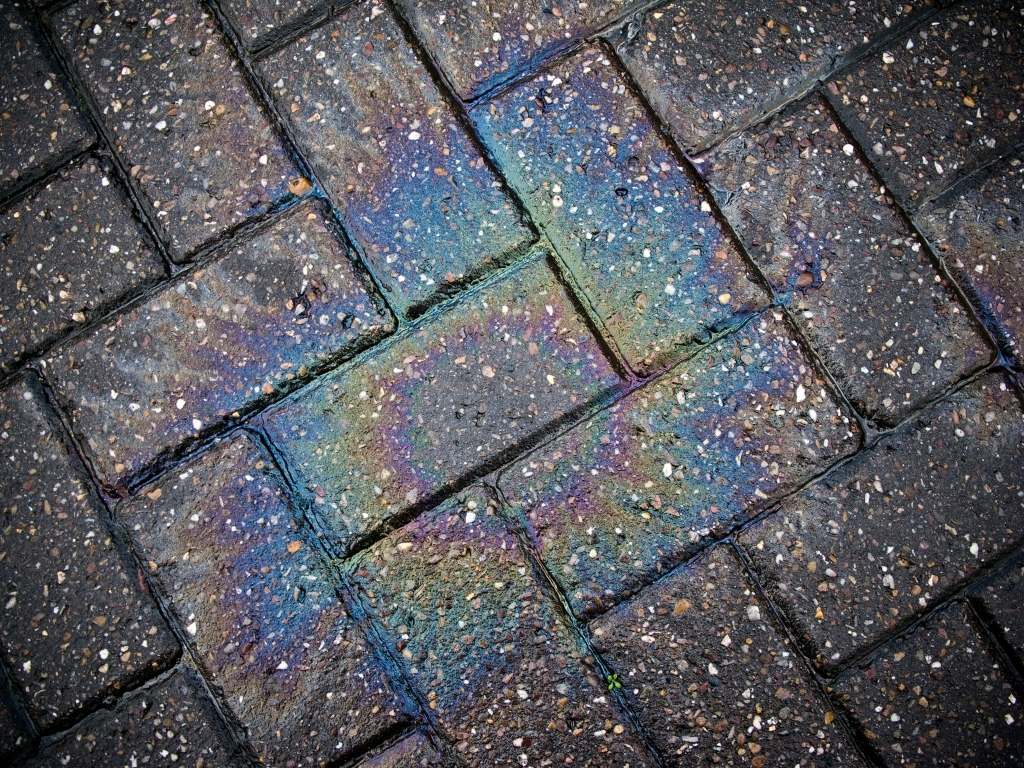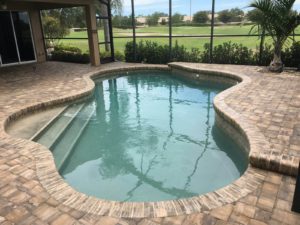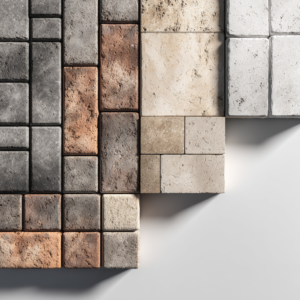If you have pavers on your driveway or patio, the time can come when you experience unwanted stains, and there’s nothing worse than seeing your pavers stained, especially by oil.
Oil stains are every homeowner’s nightmare since they are well-known for being very hard to remove.
Check this article out to learn how to remove old oil stains from pavers correctly, be it oil from a leaking car or your previous backyard cookout.

Jump to:
How to remove old oil stains from pavers?
Removing oil stains from the surface of outdoor pavers is a fairly simple task, for that, you can follow the next steps:
- Step 1: First, spread conventional kitty litter over the stained spots to soak up all the oil. It’s important to leave the kitty litter for a while, so wait for some hours to remove it.
- Step 2: After leaving the kitty litter for a while, carefully sweep the litter with a brush. Don’t use a wire brush for this to not scratch the pavers.
- Step 3: Water the pavers and with a brush and dish soap, scrub the area, especially the stained spots. On smaller stains, you can replace the dish soap with baking soda.
- Step 4: Water down the area using a garden hose with a nozzle or a pressure washer, just be careful with the pressure to not damage the pavers. After all the remains of detergent are off, let the surface dry completely.
Alternative Methods
If you followed the previous steps and it didn’t work, you can choose alternative cleaning methods.
The first method is with an oven cleaner. Spray it on the stained spots, leave it for about 15 to 20 minutes, and then water down the area. But, it’s important to say that oven cleaners have chemicals that can harm your body if inhaled, and the environment if rinsed to drains, lawns, or gardens, so, if you chose this method, be very careful.
For the second method, you can use a degreaser that is specifically made for your type of pavers to remove persistent oil or old grease stains. Apply the degreaser over the stained spots, leave it for 15 minutes, and then water down the area.
How to prevent oil stains?
There is one simple way to prevent oil stains in pavers, which is sealing the surface for protection.
Water-based sealers are recommended since they can help prevent stains, and they also smooth the pavers’ surface, making them much easier to clean.
Benefits of sealing pavers
Besides preventing oil stains, sealing your pavers is important to protect your pavers and ensure that they continue to look as new as they did the day they were installed. This is especially important for the softer paver materials like travertine.
Durability
Pavers are very famous for their durability (they can last for decades!), but applying a sealer over the natural surface can protect the pavers from other elements and make them last even longer.
Appearance
When you apply a sealer over your pavers, you preserve their beauty and enhance the look by providing a wet or a glossy finish that can make them look like their initial appearance.
Sealers help to highlight the hue of the material and restore the color of old pavers because some sealing products come with protection against UV rays.
Protection
Pavers are exposed to a variety of elements, like rain, sun rays, and snow. All of that can make them fade and favor mold and weed growth. Sealing pavers is the best way to prevent all of those things.
It’s important to say that leaving pavers unsealed in cold weather conditions can damage them. That’s because moisture can enter the porous surface and if that water eventually freezes it can expand and crack the concrete unit.
Get a free estimate!
You can always leave the work of cleaning and sealing your pavers in the hands of professionals, and if you are worried about the price, you can schedule a free estimate.
At JS Brick, we have 20+ years of experience providing paver installation, supply, and maintenance services in Sarasota and surrounding cities. For a free estimate on paver cleaning and sealing services, don’t hesitate to leave us a message or a call.



